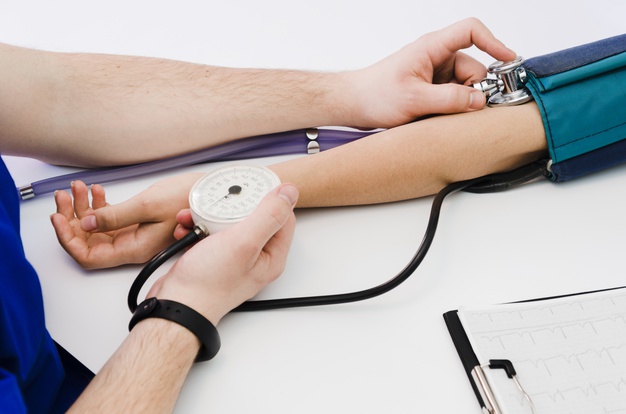
09 Jul High Blood Pressure
What is high blood pressure?
Blood pressure is the force of the blood on the walls of the arteries. It is measured as two numbers, the systolic pressure when the heart contracts and the diastolic pressure when the heart relaxes. According to the Philippine Heart Association, a normal blood pressure will fall under 120/80. A consistently higher reading may mean the person has high blood pressure. If left untreated, high blood pressure can damage important organs such as the heart, brain and kidneys.
Management and Control
Aside from the medications prescribed to control blood pressure, it is important to incorporate lifestyle changes such as the following:
Eat a healthy diet. A diet rich in whole grains, fruits, vegetables and low in fat and cholesterol can lower blood pressure.
Lose extra pounds and watch your waistline. For people who are overweight or obese, losing as little as 5 to 10 pounds may help lower blood pressure.

Exercise. Regular physical activity for 150 minutes a week, or about 30 minutes most days of the week can lower blood pressure by about 5 to 8 mm Hg.
Reduce sodium in diet. Daily sodium intake of 1,500 mg or less is ideal. Read food labels and eat fewer processed foods.
Limit alcohol. Drink in moderation – one drink for women, or two a day for men. One drink equals 1 bottle of beer, ½ glass of wine or 1 shot of gin, whiskey, tequila or brandy.

Quit smoking. Each cigarette you smoke causes a temporary increase in blood pressure. Quitting smoking helps blood pressure return to normal and reduces the risk for heart disease.
Practice relaxation techniques or slow deep breathing. This helps especially when anxiety accompanies high blood pressure.
If you are being treated for high blood pressure, take your medicines as prescribed by your doctor. Do not stop medication even if you feel good, as sometimes blood pressure will rebound to very high levels that can be dangerous.



